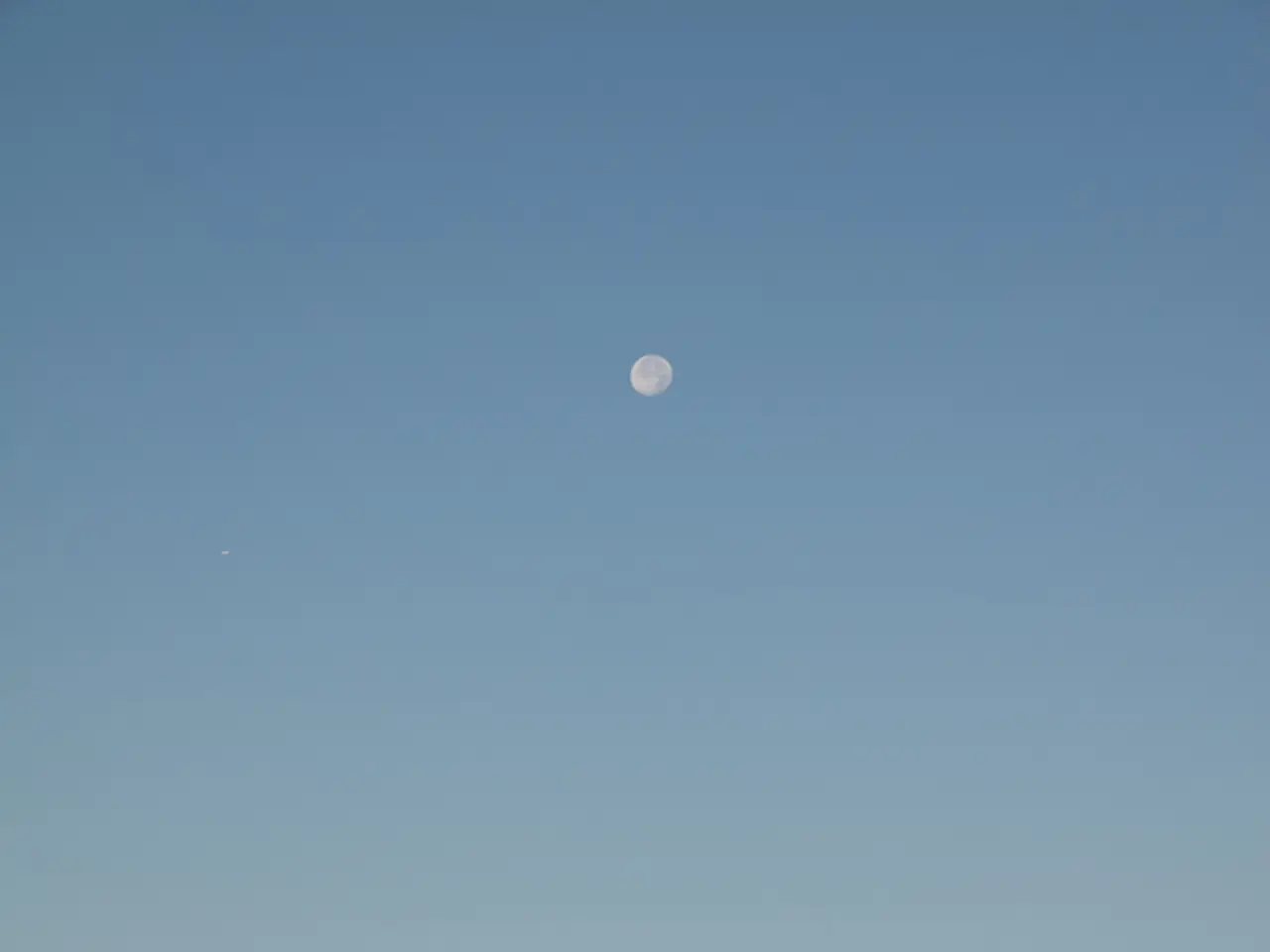Lunar eclipse stage is approaching, and these are the optimal locations to witness the spectacle.
On Sunday, September 7th, skygazers across Germany are in for a treat as a total lunar eclipse is set to light up the night. Here's what you need to know about this celestial event.
The total phase of the lunar eclipse will begin at around 19:30 UTC and last until about 20:53 UTC. Various observatories and planetariums across the country are offering special insights for this rare occasion.
The Karlsruhe Observatory might open its doors at 19:00, depending on the weather, for the lunar eclipse observation. Meanwhile, the Stuttgart Observatory will be open from 20:00 on clear nights. The Aalen Observatory has the lunar eclipse observation on its program from 20:00 to 22:00.
If you're in Stuttgart, the Stuttgart Planetarium is offering an extra special experience. They will play Pink Floyd's "The Dark Side of the Moon" album during the lunar eclipse.
For those in the Breisgau region, the Rotlache on the Schauinsland near Freiburg will be the meeting point for stargazers at 19:45. The Bodensee Planetarium in Kreuzlingen is also hosting a public evening for the lunar eclipse observation from 19:00.
The Sternwarte (observatory) in Radebeul, Germany, is also hosting an event on the same day to observe the total lunar eclipse with telescopes from 7:00 PM onwards. However, admission fees apply, and observation depends on clear weather.
Moonrise times vary by location. Berlin will see the moon rise at 19:37 UTC, Munich at 19:40 UTC, Hamburg at 19:52 UTC, and Cologne at 20:01 UTC.
The lunar eclipse begins with the moon's entry into the Earth's penumbra at 17:27 UTC. During this phase, the moon will gradually darken as it moves further into the Earth's shadow. The moon during the eclipse will appear reddish-brown.
Scientists find a lunar eclipse significant as it can spark interest in astronomy. However, research already knows what's happening during the event. For instance, if humans were on the moon during the lunar eclipse, they would not experience complete darkness due to light refraction.
It's important to note that the next total lunar eclipse visible from Germany will be on December 31, 2028. Until then, a partial lunar eclipse can be observed from Germany next year on August 28, but it requires an early morning wake-up around 4:30 AM.
Registration for observation is required by Friday afternoon via an online form. Admission is free. Experts will provide equipment for observation on the parking lots in front of the Zollern-Alb Observatory in Rosenfeld from 19:45.
So, mark your calendars and head out to your nearest observatory or meeting point to witness this breathtaking celestial event. Happy eclipse watching!
Read also:
- Nightly sweat episodes linked to GERD: Crucial insights explained
- Antitussives: List of Examples, Functions, Adverse Reactions, and Additional Details
- Asthma Diagnosis: Exploring FeNO Tests and Related Treatments
- Unfortunate Financial Disarray for a Family from California After an Expensive Emergency Room Visit with Their Burned Infant








